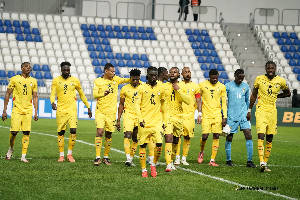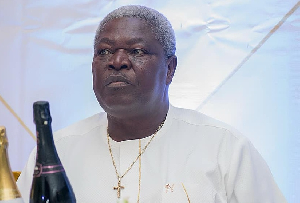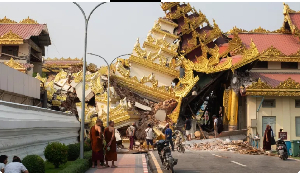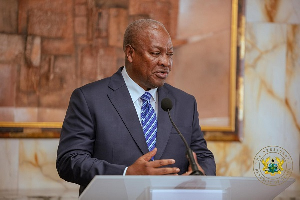The 2024 elections signaled a shift in Ghana’s electoral landscape, with religion emerging as a decisive factor alongside ethnicity.
The implications of this shift could influence political strategies, voter behavior, and national cohesion in future elections.
1. Longstanding Ethnic Voting Patterns:
Historically, ethnicity has played a central role in Ghana’s elections.
The NPP drawn strong support from the Akan-dominated regions, particularly Ashanti and Eastern, while the NDC has always been favoured by the Ewe-majority Volta Region, Northern Ghana, and other non-Akan groups.
There have always been floating voters, but the Ghanaian elections largely depend on these ethnic divides.
2. The Introduction of Religion as a Major Factor:
Dr. Mahamudu Bawumia’s rise as the first Muslim Presidential Candidate from a major party has amplified religious considerations.
Muslim-Christian Divide: Ghana has a 71% Christian and 19% Muslim population. While religious tolerance is strong, political choices are increasingly reflecting religious identities.
Impact on Voter Turnout:
The 2024 elections saw nearly 800,000 voters abstaining due to religious concerns, particularly in regions where religion and ethnicity overlap.
3. Structural Violence in Electoral Politics:
Structural violence refers to systemic barriers that disadvantage certain groups.
Structural violence manifests strongly in Ghana’s elections.
Political exclusion: Minority ethnic or religious groups often feel sidelined in governance and policy decisions.
Resource allocation: Development projects and state resources sometimes favor politically dominant regions, deepening disparities.
Electoral intimidation and misinformation:
Ethnic and religious narratives can be used to manipulate voters, increasing polarization.
4. Potential Future Implications:
Coalition Politics: Parties may need to build broader coalitions beyond traditional ethnic bases, incorporating religious considerations into campaign strategies.
Policy Shifts: Future governments may adopt more inclusive policies to address regional and religious concerns, particularly in education, public appointments, and economic development.
Rise of Religious Identity Politics: If left unchecked, religion could deepen political divisions, creating new fault lines in Ghana’s democracy.
5. Recommendations for Stability and Inclusion
Civic Education: Promote national unity through voter education emphasizing policy over identity politics.
Balanced Representation: Ensure political appointments and resource distribution reflect the diversity of Ghana’s population.
Interfaith and Interethnic Dialogue: Political and religious leaders should actively discourage division and promote coexistence.
The 2024 elections mark the beginning of a new era where both ethnicity and religion shape voter decisions. Managing these dynamics carefully will be crucial for Ghana’s democratic stability and national unity.
Policy Recommendations to Mitigate Electoral Challenges from Ethnicity & Religion:
To prevent deepening ethnic and religious divisions in Ghana’s elections, strategic policy interventions are necessary. Below are some key policy recommendations that can enhance national cohesion, electoral fairness, and political inclusivity.
1. Electoral Reforms for Inclusivity:
Proportional Representation: Consider electoral reforms that allow for proportional representation, ensuring that minority groups (ethnic and religious) have a stronger voice in governance.
Balanced Presidential Ticket: Political parties should adopt a structured approach to ensuring a religious and ethnic balance in their presidential and vice-presidential candidates to foster inclusivity.
Independent Electoral Commission (EC) Strengthening: The EC should be empowered to monitor and curb divisive campaign rhetoric centered on religion or ethnicity.
2. National Policy on Political Appointments:
Affirmative Inclusion Policy: A structured policy ensuring a fair representation of ethnic and religious groups in government appointments, public institutions, and development projects.
Decentralized Development Initiatives: Avoid the perception of political favoritism in development projects by equitable resource allocation across all regions.
3. Strengthening Civic Education & National Identity:
Reinforce National Values in Schools: Education should emphasize national identity over ethnic and religious affiliations to foster unity from an early age.
Expand the Role of the National Commission for Civic Education (NCCE):
Conduct mass civic education campaigns on the dangers of ethnic and religious-based voting.
Use local languages and religious leaders to reach grassroots communities.
Media Regulation & Responsible Political Messaging: The National Media Commission (NMC) should enforce strict guidelines against divisive political campaigns and misinformation.
4. Interfaith and Interethnic Dialogue Mechanisms:
Political & Religious Leaders’ Forum: Institutionalize periodic interfaith and interethnic dialogue forums where key stakeholders discuss national unity issues.
Peace Pacts Before Elections: Presidential candidates should commit to non-divisive campaigns through publicly signed peace pacts, with religious and traditional leaders as witnesses.
5. Economic & Social Integration Policies:
Balanced Infrastructure Development: Government infrastructure projects should be spread equitably across all regions, reducing perceptions of favoritism toward certain ethnic or religious strongholds.
Economic Empowerment in Minority Regions: Targeted investments in job creation and education in underrepresented ethnic and religious communities to reduce economic disparities that fuel political tensions.
Conclusion:
If Ghana is to maintain its democratic stability, policymakers must intentionally depoliticize ethnicity and religion. The above policies will help reduce voter apathy, build national cohesion, and ensure fair representation in governance.
Opinions of Friday, 7 March 2025
Columnist: Jabil Sayibu















